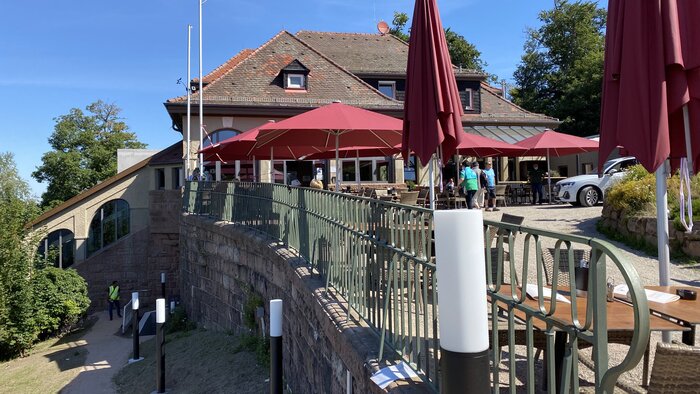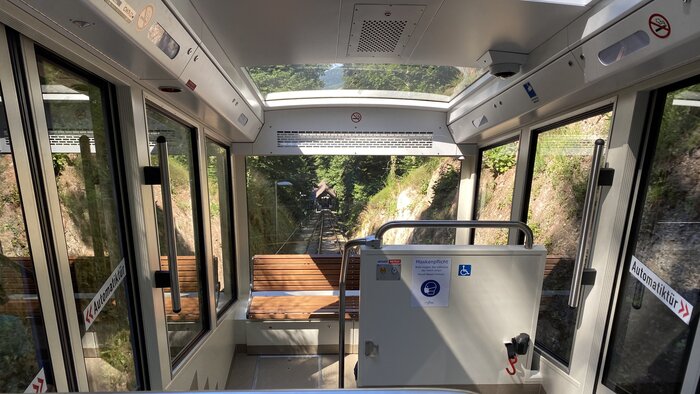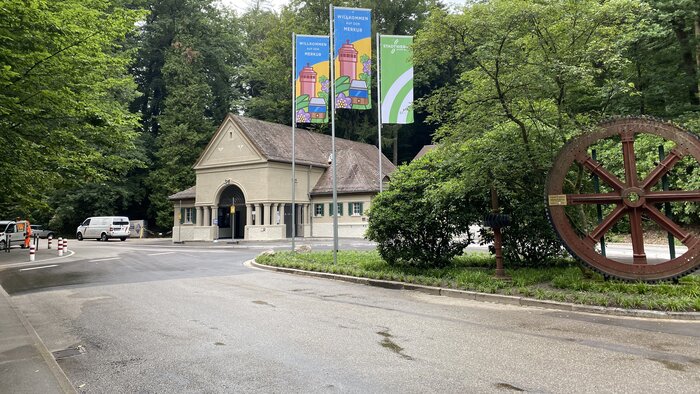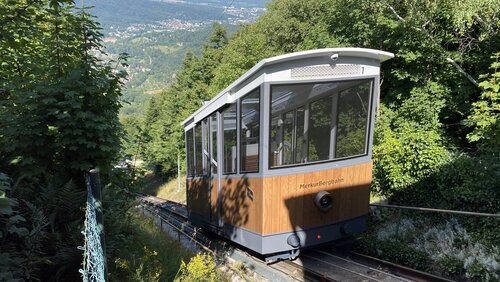Logistics and Transport
Upgrade of MerkurBergbahn (cable railway), Baden-Baden
Baden-Baden Department of Public Works
Baden-Baden, Germany
Ingenieurbüro Schönholzer AG (Switzerland) and Architekten Maier
Doppelmayr/Garaventa AG (Switzerland)
01/2016 – 08/2020, of which realization 01/2019 – 08/2020
- Vehicle capacity: 38 persons
- Inclined length: 1181 m
- Steepest gradient: 58%
- Max. vehicle speed 8 m/s
- Transportation capacity: 462 persons/h
Upgrading of the valley and mountain stations, the track section, and the renewal of all electromechanical equipment, including vehicles. All maintenance and barrier-free design measures as well as the upgrade of access control systems at both stations.
The MerkurBergbahn (Merkur cable railway) in Baden-Baden was taken into operation in 1913 and is one of the longest and steepest funiculars in Germany with a length of 1192 m and a gradient ranging between 23% and 54%. The concession – approval for the construction and operation of the cable railway in accordance with Section 9 of the State Funicular Act (LSeilG) – expired at the end of 2017. Drees & Sommer examined the plausibility of measures proposed in an externally conducted safety analysis and drew up a feasibility study / realization scenarios for extension of the concession.
In addition to replacement of the carriages, platform access doors in the stations and the mechanical and electrical systems, the stations were completely redesigned and modernized (with measures including fire prevention, wheelchair access, video surveillance, etc.).
The team of Drees & Sommer infrastructure and development management experts was commissioned to undertake project control of the planning and successive realization of measures. The investment volume for the project is €7.75 million.
Service Elements
- Scenario analysis
- Planner selection process
- Project control for HOAI* work phases 1-9 (*German Fee Structure for Architects and Engineers)
- LCM workshop to develop process plan
 © Drees & Sommer
© Drees & Sommer © Drees & Sommer
© Drees & Sommer © Drees & Sommer
© Drees & Sommer © Drees & Sommer
© Drees & Sommer